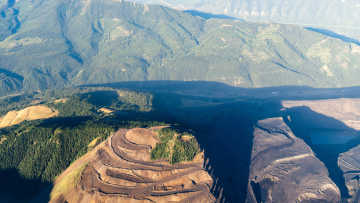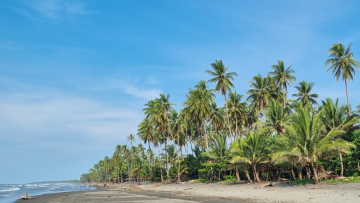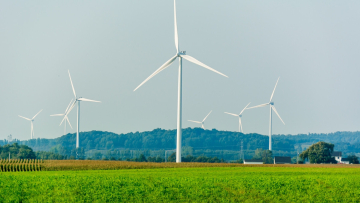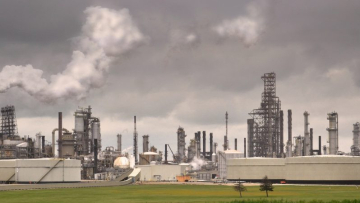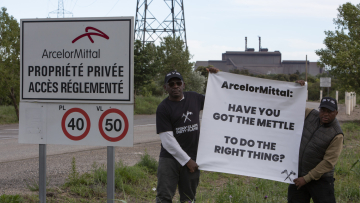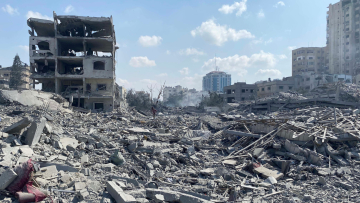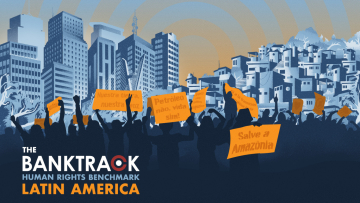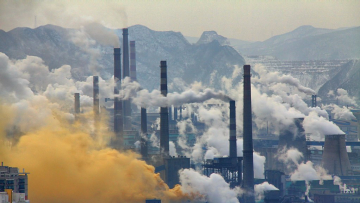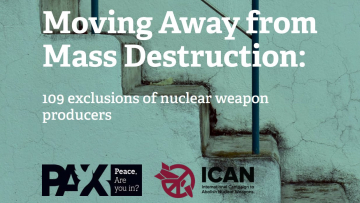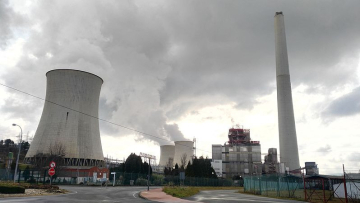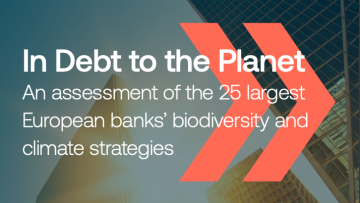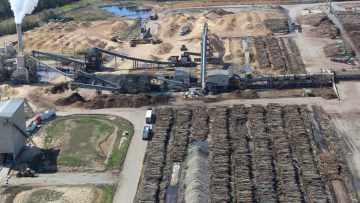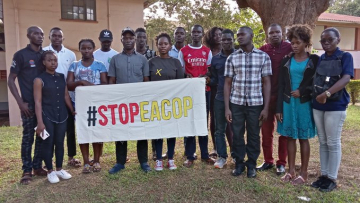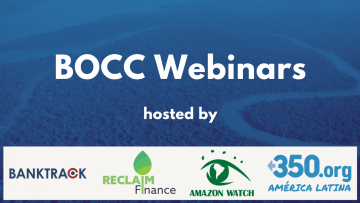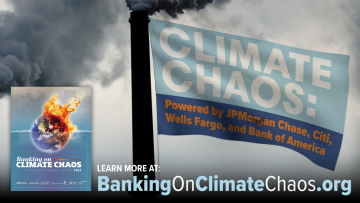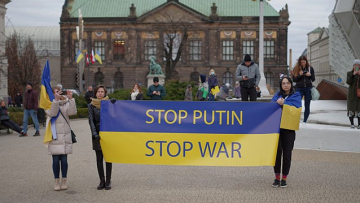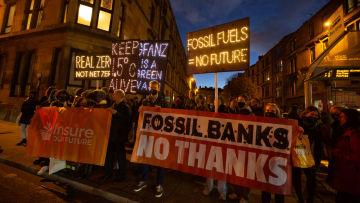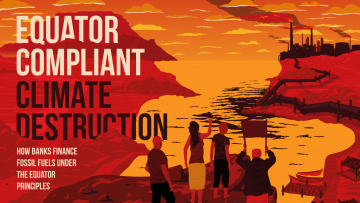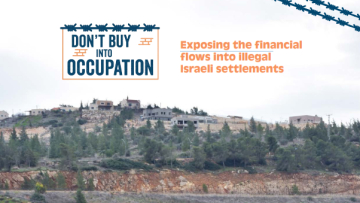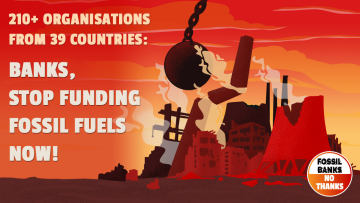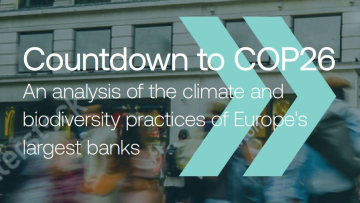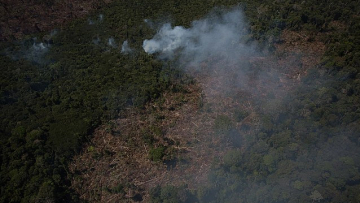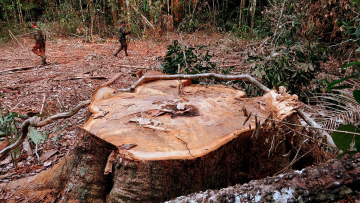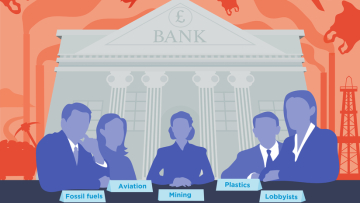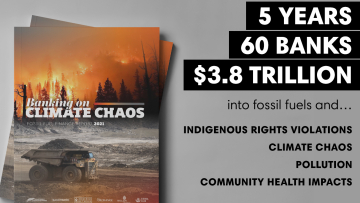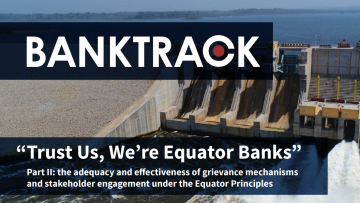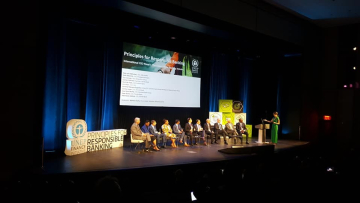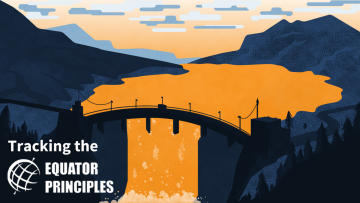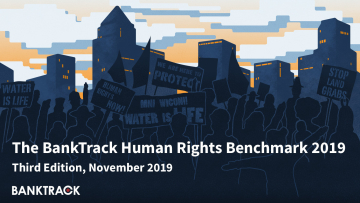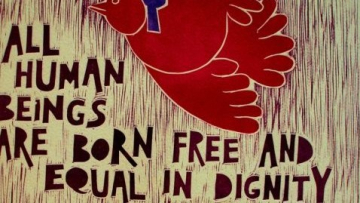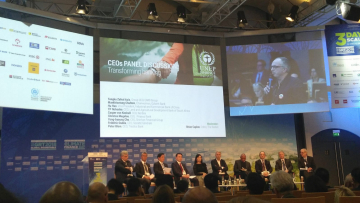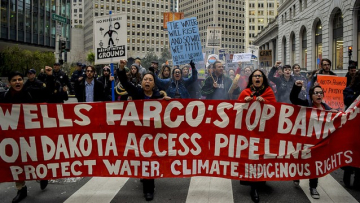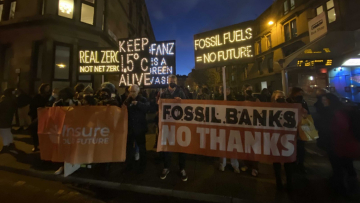
Active
This profile is actively maintained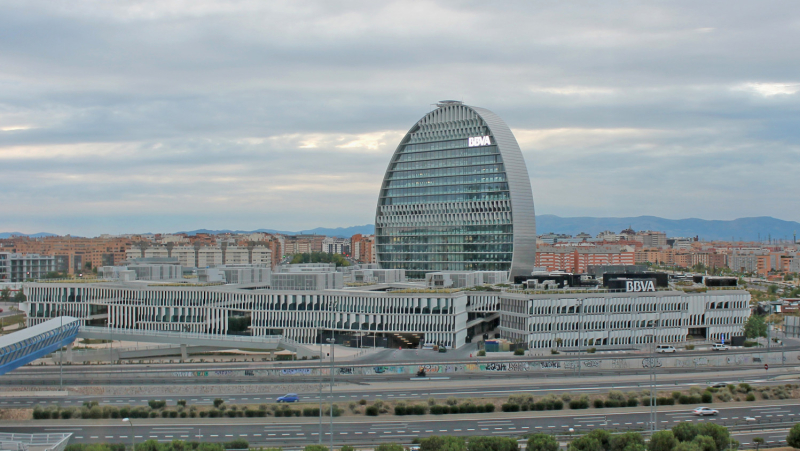
Active
This profile is actively maintained| Website | https://www.bbva.com/en/ |
| Headquarters |
C. Sauceda, 28
28050 Madrid
Spain
|
| CEO/chair |
Onur Genç CEO |
| Supervisor | |
| Ownership |
listed on Bolsa de Madrid, Bolsa Mexicana de Valores & NYSE
BBVA's shareholder structure can be accessed here. |
Banco Bilbao Vizcaya Argentaria (BBVA), is a multinational Spanish banking group. It was formed in 1999 from a merger of Banco Bilbao Vizcaya, founded in 1857, and Argentaria. It provides financial services in over 30 countries. The group has a leading position in the Spanish market, where it began operating over 150 years ago. It also has franchises in South America, where it is the main financial institution in Mexico. It is one of the 15 biggest banks in the United States, where it has a franchise in the Sunbelt region. In March 2017 BBVA acquired a 49.85% ownership of GarantiBank, Turkey.
BBVA's most important sustainability commitments can be found at the website sections listed below.
BBVA is linked to a number of companies and projects that BankTrack considers controversial (so called Dodgy Deals), e.g. as a current or past financier or through an expression of interest. The profiles below provide more details on the nature of BBVA's link to these deals.
BBVA's whistleblowing channel allows anybody to report confidentially and, if they wish, anonimously, any breaches of the Code of Conduct or applicable laws, including human rights complaints. Individuals and communities can lodge a complaint here.
Stakeholders may also raise complaints via the OECD National Contact Points (see OECD Watch guidance).
BBVA is an Equator Principles signatory. While the Equator Principles have no official grievance mechanism, complaints relating to this bank's financing of Equator Principles projects can be filed through our own website www.equator-complaints.org.
This page evaluates BBVA's responses to instances of alleged human rights violations linked to its finance, raised by civil society organisations. It is not intended to be exhaustive, but covers selected impacts raised by BankTrack and other civil society partners since 2016. For the full scoring methodology, see here. For more information about BankTrack's evaluation of bank responses to human rights impacts, see the 2021 report "Actions speak louder: assessing bank responses to human rights violations".
The bank provided no detail on whether it engaged with its client or took any appropriate action.
Following the bank's response: The bank stated that ""Drummond is no longer a BBVA customer"" following the sale of BBVA's US subsidiary in November 2020. Whilst the bank has disengaged with the company, this does not consitute appropriate action according to rights-holders involved in raising the issue with the bank as the bank has merely sold the subsidiary that maintains the financial relationship between the bank and the company, rather than ensuring that finance for Drummond was suspended. Therefore, the score remains unchanged.
No information available on whether the bank monitored progress.
Following the bank's response: The bank noted that ""Drummond is no longer a BBVA customer"" and therefore the bank was not in a position to monitor the progress of the company. As the bank did not provide any details on whether it monitored the impact on rights-holders involved in raising the issue with the bank of its own action of disengaging from the company, the score remains unchanged.
Following the bank's response: The bank has not provided details on how it monitored the progress of specific companies or how the bank monitored the impact on rights-holders involved in raising the issue with the bank of its own action of updating the Agriculture sector policy. Therefore, the score remains unchanged.
Banks and Climate
The 2024 Banking on Climate Chaos report showed that Banco Bilbao Vizcaya Argentaria (BBVA) provided US$ 61.033 Billion in financing to the fossil fuel industry between 2016 and 2023. In 2023 only, Banco Bilbao Vizcaya Argentaria (BBVA) provided US$ 3.967 Billion for oil, gas and coal companies expanding fossil fuels. Find further details on Banco Bilbao Vizcaya Argentaria (BBVA) fossil fuel portfolio and how it compares to other large banks globally on Fossil Banks No Thanks and in the Banking on Climate Chaos report.
Partner organisation Reclaim Finance tracks the coal, oil and gas policies of financial institutions, including banks, in their Coal Policy Tool (CPT) and the Oil and Gas Policy Tracker (OGPT). BankTrack works closely with Reclaim Finance and endorses their policy assessments. Find further details on their assessment of BBVA's fossil fuel policy below.
False Solutions Tracker
The purpose of the False Solutions Tracker is to give a clear overview of energy technologies that fall under banks' individual sustainable finance commitments. The tracker lists 11 energy technologies that are usually associated with the energy transition and the decarbonisation of the economy. These technologies are defined here and classified in three categories:
-
Real solutions: Technologies that deliver on a Just Transition towards Energy Democracy. BankTrack considers these technologies as real solutions only if and when they do deliver Energy Democracy.
-
Solutions under strict conditions: Energy technologies that could be real solutions if they deliver on a Just Transition towards Energy Democracy but that could also be false solutions. This is the case of hydrogen and hydropower. On one hand, fossil-free and green hydrogen could be a real solution under certain conditions. However, fossil-based hydrogen and nuclear hydrogen are always false solutions. On the other hand, hydropower lifespan extension could also be a real solution under strict conditions while hydropower expansion is a false solution.
-
False solutions: Energy technologies that are not aligned with a just transition towards Energy Democracy.
For each one of the 11 energy technologies, the tracker indicates if it is included in bank's individual sustainable finance commitments:
For Real solutions:
- : Yes, the bank includes its finance towards this energy technology in its sustainable finance reporting.
- : Yes, the bank includes its finance towards this energy technology in its sustainable finance reporting, but under certain conditions. In this case, those conditions are mentioned in the "relevant policy document" section for each bank.
- : No, the bank does not include its finance towards this energy technology in its sustainable finance reporting.
- : It is unclear whether the bank includes or not its finance towards this energy technology in its sustainable finance reporting.
For solutions under strict conditions and for false solutions:
- : Yes, the bank includes its finance towards this energy technology in its sustainable finance reporting.
- : Yes, the bank includes its finance towards this energy technology in its sustainable finance reporting, but under certain conditions. In this case, those conditions are mentioned in the "relevant policy document" section for each bank.
- : No, the bank does not include its finance towards this energy technology in its sustainable finance reporting.
- : It is unclear whether the bank includes or not its finance towards this energy technology in its sustainable finance reporting.
Banks and Human Rights
BankTrack assessed BBVA in its 2024 Global Human Rights Benchmark, where it achieved 7.5 points out of 15 and was ranked as a “moderate achiever”.
The bank scored 0.5 out of 3 points on the new “specific rights indicators”, which assess how banks address human rights defenders, Indigenous Peoples’ right to Free, Prior and Informed Consent and environmental rights in their policies and practices.
In addition, BBVA scored 0.2 out of 3 on how it responds to alleged human rights violations linked to its finance, which were raised by civil society organisations. More information is detailed in the “Accountability” section of this profile.
The table below shows BankTrack's assessment of how BBVA has implemented the UN Guiding Principles on Business and Human Rights. Please click on 'expand all details' and 'explanation' for further information on the methodology.
Our policy assessments are always a work in progress. We very much welcome any feedback, especially from banks included in the assessments. Please get in touch at humanrights@banktrack.org.
BankTrack assessed BBVA in its 2024 Human Rights Benchmark Latin America, part of the series of BankTrack's Regional Benchmarks, where it achieved 7 points out of 14 and was ranked as a "moderate achiever".
Human Rights Benchmark Latin America 2024
Global Human Rights Benchmark 2022
Global Human Rights Benchmark 2024
Banks and Nature
BBVA’s policies for forest-risk sectors (beef, soy, palm oil, pulp and paper, rubber and timber) have been assessed by the Forests & Finance coalition, achieving an overall score of 5.6 out of 10 and ranking it as a front runner. BBVA achieved a score of 3 out of 10 specifically for its policies related to the beef sector and 6.1 out of 10 for its policies related to the palm oil sector. Between 2016 and 2022, BBVA provided USD 678 million in credit to companies operating in these forest-risk sectors.
BankTrack has also assessed BBVA’s policies related to the wood biomass sector and found that biomass is not mentioned in its policies and no safeguards or exclusions are in place for wood biomass. For more information, see the links below.
Forest & Finance Policy Assessment 2022: Overall scores
A bank can obtain a total of 10 points for the quality of its policies. The total score is based on their scores per sector, weighted against their financing and investment for each sector. For further details on this see here. Based on their overall score, banks are then classified as Laggards, Followers, Front runners or Leaders, as follows:
Forest & Finance Policy Assessment 2022: Beef
A bank can obtain a total of 10 points for the quality of its beef policy. The total score is based on their scores per sector, weighted against their financing and investment for each sector. For further details on this see here. Based on their overall score, banks are then classified as Laggards, Followers, Front runners or Leaders, as follows:
Forest & Finance Policy Assessment 2022: Palm Oil
A bank can obtain a total of 10 points for the quality of its palm oil policy. The total score is based on their scores per sector, weighted against their financing and investment for each sector. For further details on this see here. Based on their overall score, banks are then classified as Laggards, Followers, Front runners or Leaders, as follows:
Tracking the Net Zero Banking Alliance
BBVA is a member of the Net Zero Banking Alliance (NZBA) and has therefore committed to reduce its financed emissions to net zero by 2050; within 18 months of joining the alliance set interim targets for 2030 (or sooner) for high emission priority sectors, and within 36 months set further sector targets; set new intermediary targets every 5 years from 2030 onwards; annually publish data on emissions and progress against a transition strategy including climate-related sectoral policies; and take a robust approach to the role of offsets in transition plans. BankTrack track's implementation of these commitments in the NZBA compliance tracker.
Banks and Steel
As part of the Net Zero Banking Alliance (NZBA), BBVA is required to set interim targets for 2030 for high emission priority sectors. For BBVA, this includes its lending to the steel sector. You can see BBVA’s iron and steel decarbonisation targets, and its progress towards meeting them in our NZBA steel targets compliance tracker:
Reclaim Finance also tracks the metallurgical coal policies of financial institutions, including banks, in their Coal Policy Tool. BankTrack works closely with Reclaim Finance and endorses their policy assessments. Find further details on their assessment of BBVA metallurgical coal policy below.

